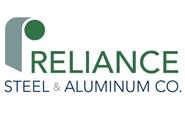Market Segment

October 20, 2016
Reliance Steel: Softer Prices and Demand
Written by Sandy Williams
Reliance Steel & Aluminum reported sales of $2.19 billion, down 0.8 percent from Q2 and down 4.4 percent from Q3 2015. Tons sold were down 4.9 percent from the previous quarter to 1,445,500 tons with average selling price per ton up 4.4 percent, sequentially.
Reliance was able to maintain during most of the quarter the 4.4 percent increase in average selling price resulting from mill price increases in second quarter. Higher inventory costs and declining prices late in the quarter, along with lower volume decreased margins by 1 percent.
Net income attributable to Reliance was $49.5 million and included a pre-tax impairment and restructuring charge of $67.3 million from the closing of certain operations servicing the energy market.
Said President and CEO Gregg Mollins, “As far as demand goes, although it has been lighter so far in quarter four and overall not as strong as we had originally anticipated heading into 2016, we believe customer demand levels are generally healthy and inventory positions are lean. Our tons sold for the third quarter declined by 4.9% from the second quarter 2016, which was above our expectation of down 1% to 3% but consistent with MSCI industry average decline of 4.9%. Overall, demand for metal products weakened in the third quarter more than we had anticipated, which we believe was due to decreased metal pricing as well as general economic and political uncertainty.”
Reliance has been adding equipment to existing facilities to support increased aluminum processing for the automotive industry. A new facility will open in Kentucky in mid-2017 that will support both aluminum and steel processing in the region. In Mexico, a new facility serving the automotive market commenced operations in July and is expected to be running close to capacity by early 2017.
Heavy industry demand was down in third quarter but the five-year infrastructure bill is expected to increase demand for road construction equipment in 2017. Nonresidential construction continues to show steady but slow growth.
The energy market for oil and gas remains weak with low levels of drilling activity. Because of changes in the global market and more efficient drilling technology potentially reducing the amount of steel needed, Reliance has further reduced its long term outlook for energy sector recovery and its businesses that service the industry.
Carbon steel pricing was higher in the third quarter but has been trending downward and Reliance expects that to continue in the fourth quarter. Mollins, when questioned about pricing during the earnings call, says that he hopes Nucor’s recent price increase on plate will hold but that remains to be seen.
Senior executive vice-president and CFO Karla Lewis said Reliance’s average selling price in Q4 was down 4.5 percent from Q3. This year they are guiding downward 3 percent. “We really try to make people understand how important the shipping day is in the service center business and we have less shipping days in the fourth quarter so that even if demand stays relatively steady, we’re going to ship fewer tons,” said Lewis.
“Demand is softer than we would like it to be, softer than we thought it would be, and pricing generally follows demand level,” said Mollins. Reliance is anticipating a 5-7 percent decline in tons for fourth quarter. He added he would especially like to see a price increase on flat-rolled products but that will be up to the mills.
Mollins said Reliance has not seen any manufacturing moving overseas, just some “uncertainty in the marketplace with our customer base.” With prices declining, customers don’t know if it’s hit bottom, he said, so they are buying only what they need and no more. The uncertainty stems from the economy and the current political environment. Customer and peer inventory levels are in good shape and for Reliance it is at 4.6 time turns.
Mollins, when asked, said he wasn’t worried about mini-mills investing in fabricating their own metal. “As far as them getting into the service center industry, any of the mills, we haven’t seen it, we don’t anticipate to see it; it’s not getting in the way of our M&A outlook. So as far as we’re concerned it’s a non-event.”







